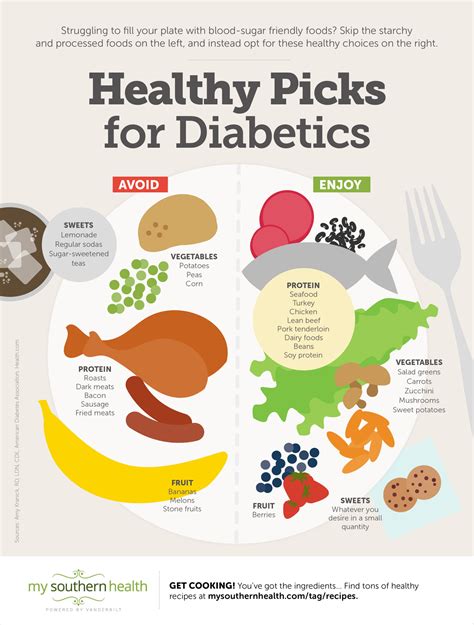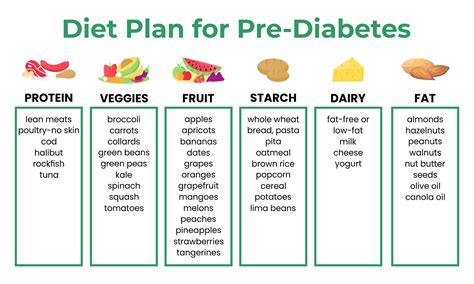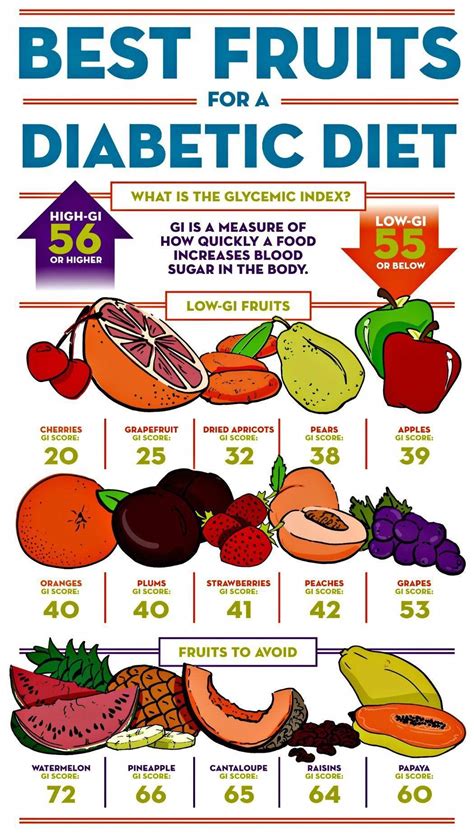Intro
Manage diabetes with a personalized diet plan, incorporating healthy foods, glucose control, and meal planning strategies to regulate blood sugar levels and prevent complications.
Diabetes is a chronic health condition that affects millions of people worldwide. It is characterized by high blood sugar levels, which can lead to a range of complications, including heart disease, kidney damage, and nerve damage. One of the most effective ways to manage diabetes is through a healthy diet plan. A well-planned diabetes diet plan can help regulate blood sugar levels, improve overall health, and reduce the risk of complications. In this article, we will explore the importance of a diabetes diet plan and provide tips and guidelines for creating a personalized plan.
A diabetes diet plan is not just about cutting out sugary foods and drinks, but about making informed food choices that help regulate blood sugar levels. It involves eating a variety of nutrient-dense foods, including fruits, vegetables, whole grains, lean proteins, and healthy fats. A diabetes diet plan should also take into account individual calorie needs, lifestyle, and personal preferences. With the right diet plan, people with diabetes can manage their condition, improve their overall health, and reduce the risk of complications.
The importance of a diabetes diet plan cannot be overstated. A healthy diet plan can help people with diabetes regulate their blood sugar levels, improve their insulin sensitivity, and reduce their risk of complications. It can also help with weight management, improve energy levels, and enhance overall well-being. Furthermore, a diabetes diet plan can help people with diabetes make informed food choices, which can be empowering and confidence-boosting. By taking control of their diet, people with diabetes can take control of their health and well-being.
Understanding Diabetes and Nutrition

Understanding the relationship between diabetes and nutrition is crucial for creating an effective diabetes diet plan. Diabetes is a condition characterized by high blood sugar levels, which can be caused by a range of factors, including insulin resistance, insulin deficiency, and genetics. Nutrition plays a critical role in managing diabetes, as the food we eat can affect blood sugar levels, insulin sensitivity, and overall health. A diabetes diet plan should take into account the nutritional needs of the individual, including their calorie needs, macronutrient requirements, and micronutrient needs.
Macronutrients and Diabetes
Macronutrients, including carbohydrates, proteins, and fats, play a critical role in diabetes management. Carbohydrates, in particular, have a significant impact on blood sugar levels, as they are broken down into glucose during digestion. The glycemic index (GI) is a measure of how quickly carbohydrates raise blood sugar levels, with high-GI foods causing a rapid increase in blood sugar levels. Protein and fat, on the other hand, have a minimal impact on blood sugar levels, but can affect insulin sensitivity and overall health.Creating a Personalized Diabetes Diet Plan

Creating a personalized diabetes diet plan involves taking into account individual calorie needs, lifestyle, and personal preferences. The plan should be tailored to the individual's nutritional needs, including their macronutrient requirements, micronutrient needs, and dietary restrictions. A registered dietitian or a healthcare professional can help create a personalized diabetes diet plan that takes into account the individual's health goals, lifestyle, and nutritional needs.
Setting Health Goals
Setting health goals is an essential step in creating a personalized diabetes diet plan. Health goals may include regulating blood sugar levels, improving insulin sensitivity, losing weight, or reducing the risk of complications. The goals should be specific, measurable, achievable, relevant, and time-bound (SMART), and should be reviewed and revised regularly.Food Choices for Diabetes Management

Food choices play a critical role in diabetes management, and a diabetes diet plan should emphasize whole, nutrient-dense foods, including fruits, vegetables, whole grains, lean proteins, and healthy fats. The plan should also limit or avoid processed and packaged foods, sugary drinks, and saturated and trans fats.
Foods to Emphasize
Foods to emphasize in a diabetes diet plan include: * Fruits: apples, berries, citrus fruits * Vegetables: leafy greens, broccoli, bell peppers * Whole grains: brown rice, quinoa, whole wheat bread * Lean proteins: chicken, fish, beans * Healthy fats: nuts, seeds, avocadosFoods to Limit or Avoid
Foods to limit or avoid in a diabetes diet plan include: * Processed and packaged foods: sugary snacks, frozen meals * Sugary drinks: soda, sports drinks, sweet tea * Saturated and trans fats: butter, lard, partially hydrogenated oilsMeal Planning and Portion Control

Meal planning and portion control are essential components of a diabetes diet plan. Meal planning involves planning and preparing healthy meals in advance, while portion control involves eating the right amount of food to manage blood sugar levels and weight.
Meal Planning Tips
Meal planning tips include: * Planning meals in advance * Shopping for healthy ingredients * Preparing meals at home * Eating regular meals and snacks * Avoiding skipping mealsPortion Control Tips
Portion control tips include: * Using a food scale or measuring cups * Eating until satisfied, not full * Avoiding oversized portions * Choosing smaller plates and bowls * Drinking water before mealsStaying Motivated and Accountable

Staying motivated and accountable is crucial for successful diabetes management. This can be achieved by setting realistic goals, tracking progress, and seeking support from healthcare professionals, family, and friends.
Tracking Progress
Tracking progress involves monitoring blood sugar levels, weight, and other health metrics. This can be done using a logbook, mobile app, or other tracking tools.Seeking Support
Seeking support involves working with a healthcare team, including a registered dietitian, nurse, and doctor. It also involves seeking support from family and friends, joining a support group, and connecting with others who have diabetes.What is the best diet for diabetes management?
+A well-planned diabetes diet plan that emphasizes whole, nutrient-dense foods, including fruits, vegetables, whole grains, lean proteins, and healthy fats, is the best diet for diabetes management.
How often should I eat to manage my blood sugar levels?
+Eating regular meals and snacks, ideally 3-5 times per day, can help manage blood sugar levels and prevent spikes and dips.
Can I still enjoy my favorite foods with diabetes?
+Yes, you can still enjoy your favorite foods with diabetes, but it's essential to do so in moderation and as part of a balanced diet plan. Choose smaller portions, and balance high-carb or high-sugar foods with healthier options.
In conclusion, a diabetes diet plan is a critical component of diabetes management. By understanding the relationship between diabetes and nutrition, creating a personalized diet plan, and making informed food choices, people with diabetes can manage their condition, improve their overall health, and reduce the risk of complications. Remember to stay motivated and accountable, and don't hesitate to seek support from healthcare professionals, family, and friends. With the right diet plan and support, people with diabetes can thrive and live a healthy, active life. We invite you to share your experiences, ask questions, and join the conversation on creating a personalized diabetes diet plan that works for you.
